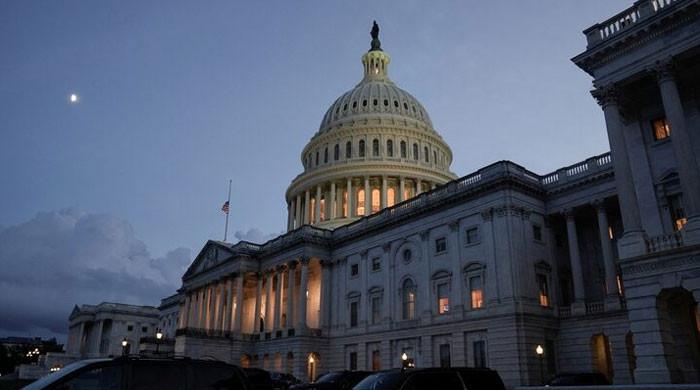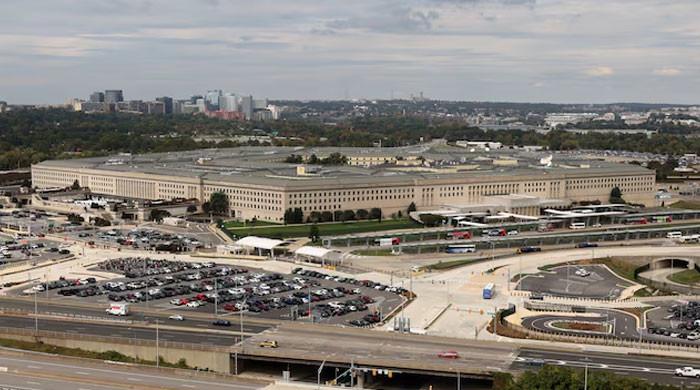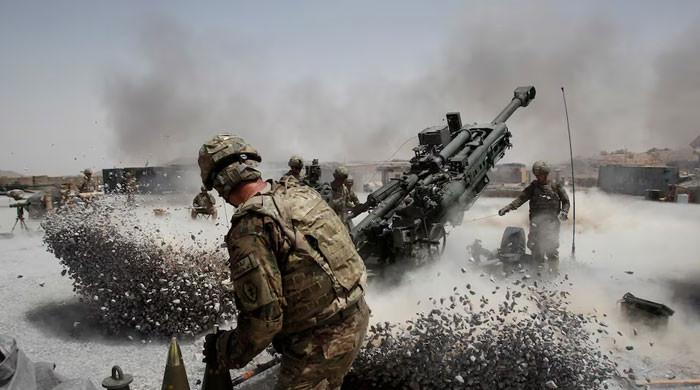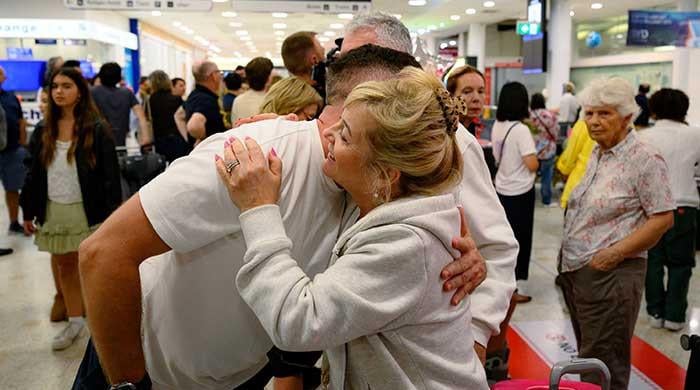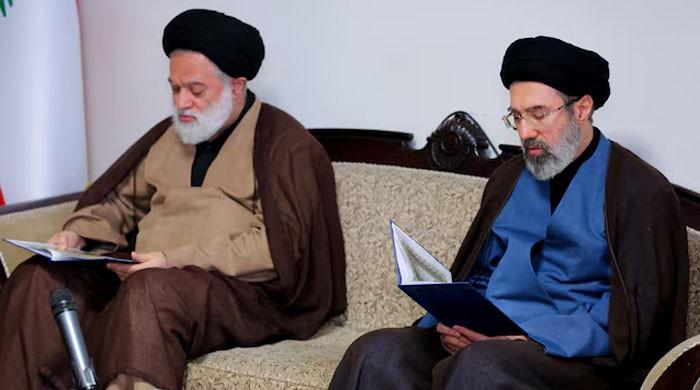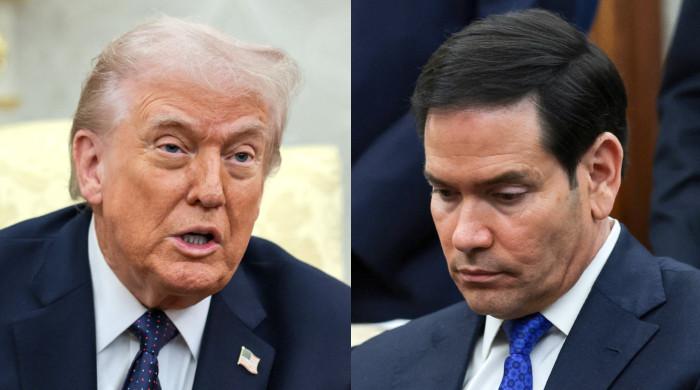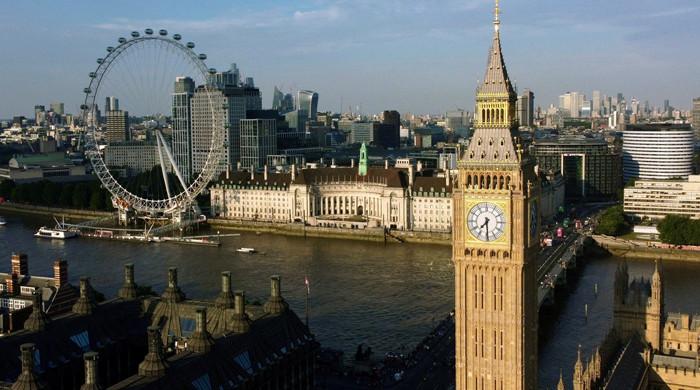'Disarm Hezbollah' for peace: Saudi, Iran trade insults over Lebanon
'As long as you have an armed militia, you will not have peace in Lebanon'
December 02, 2017
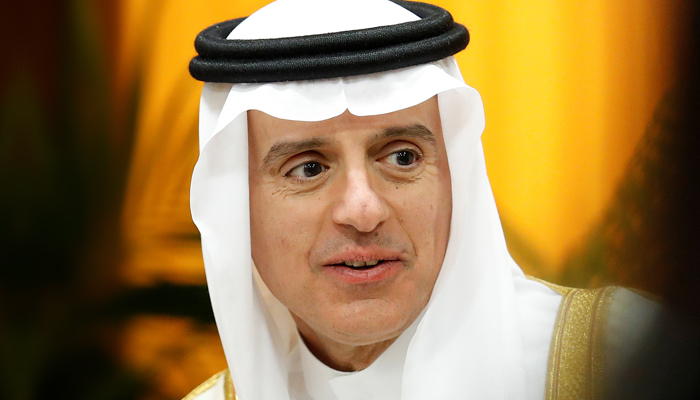
ROME: Lebanon has been “hijacked” by Hezbollah and can only flourish if the Iranian-backed group disarmed, the Saudi Arabian foreign minister told a three-day conference on creating "positive agenda" in the Mediterranean on Friday.
Hezbollah, the militia, was set up by the powerful Iranian Revolutionary Guards (IRGC) in the 1980s and has grown steadily in influence, sharing power in the Beirut government and giving crucial support to President Bashar al-Assad in Syria’s civil war.
Its growing strength has alarmed Saudi Arabia, a Muslim monarchy that is Iran’s arch-rival for regional influence.
Called "Beyond Turmoil", the gathering in Rome became the stage for a bitter slanging match between the two countries, with Saudi Foreign Minister Adel al-Jubeir saying Iran’s "negative influence throughout the region" was clear for everyone to see.
“Lebanon will only survive or prosper if you disarm Hezbollah,” al-Jubeir told a conference in Italy. “As long as you have an armed militia, you will not have peace in Lebanon.”
Al-Jubeir said the situation in Lebanon was “tragic” and accused Iran of fomenting unrest across the Middle East.
“Since 1979, the Iranians have literally got away with murder in our region, and this has to stop,” he said.
A month ago, Saad al-Hariri resigned as Lebanese prime minister while he was in Saudi Arabia, triggering a political crisis in Beirut and thrusting Lebanon onto the front line of the regional rivalry.
Saudi Arabia denied coercing its long-time ally to quit, and al-Hariri has now returned to Beirut and indicated that he might withdraw his resignation.
Elsewhere in the region, Saudi Arabia fears that Hezbollah and Iran are trying to take control of its neighbour Yemen, by supporting Houthi forces against a Riyadh-led military coalition.
Hezbollah denies fighting in Yemen, sending weapons to the Houthis, or firing rockets at Saudi Arabia from Yemeni territory. Jubeir rejected this and said his country would not back down in the conflict.
“The Houthis cannot be allowed to take over a country,” he said.
Iran, on the other, got its own barbs at first, with Foreign Minister Mohammad Javad Zarif saying, "I don’t want to turn this into a Saudi bashing, but..."
Saudi Arabia "has rejected every ceasefire effort in Syria, in Lebanon," he said.
"Who supported [Daesh], hoping they would overthrow the government of Syria in three weeks? Who was behind an entire blockade of Qatar?
"Who tried to force the prime minister of Lebanon out of office?" he asked.
"We believe all the countries need to live together, work together, but some people are trying to exclude us," he said sadly.
Al-Jubeir protested that it wasn’t Saudi Arabia that struggled to have friends and allies in the region and beyond and Iran might want to do some soul-searching.
It fell to a tired-sounding Russian Foreign Minister Sergei Lavrov to urge the pair to try dialogue rather than insults.
"We have been raising the issue of Saudi Arabia and Iran differences many times, they should start talking. It’s really unfortunate," Lavrov said.
Al-Jubeir said his country only had bad relations with two nations — Iran and North Korea.
He said Riyadh did not have relations with Israel, which shares Saudi worries over Iran because it was waiting for a Palestinian peace deal.
He said everyone knew what a solution would look like to the decades-old conflict.
“It is not rocket science,” he said, adding that he was waiting for the United States to put forward a new proposal.
One of the most intractable problems facing negotiators is the spread of Jewish settlements across occupied territory that the Palestinians want for a future state.
Al-Jubeir said he expected an eventual deal would set the borders of a Palestinian state on the lines prevailing before the 1967 war when Israel captured the West Bank and Gaza Strip.
However, he said adjustments could be made for settlers.
“Seventy percent of the settlers who are on the (1967) Green Line remain in Israel, and the other 30 percent — you offer them compensation and work out housing, and they can move to Israel.”




